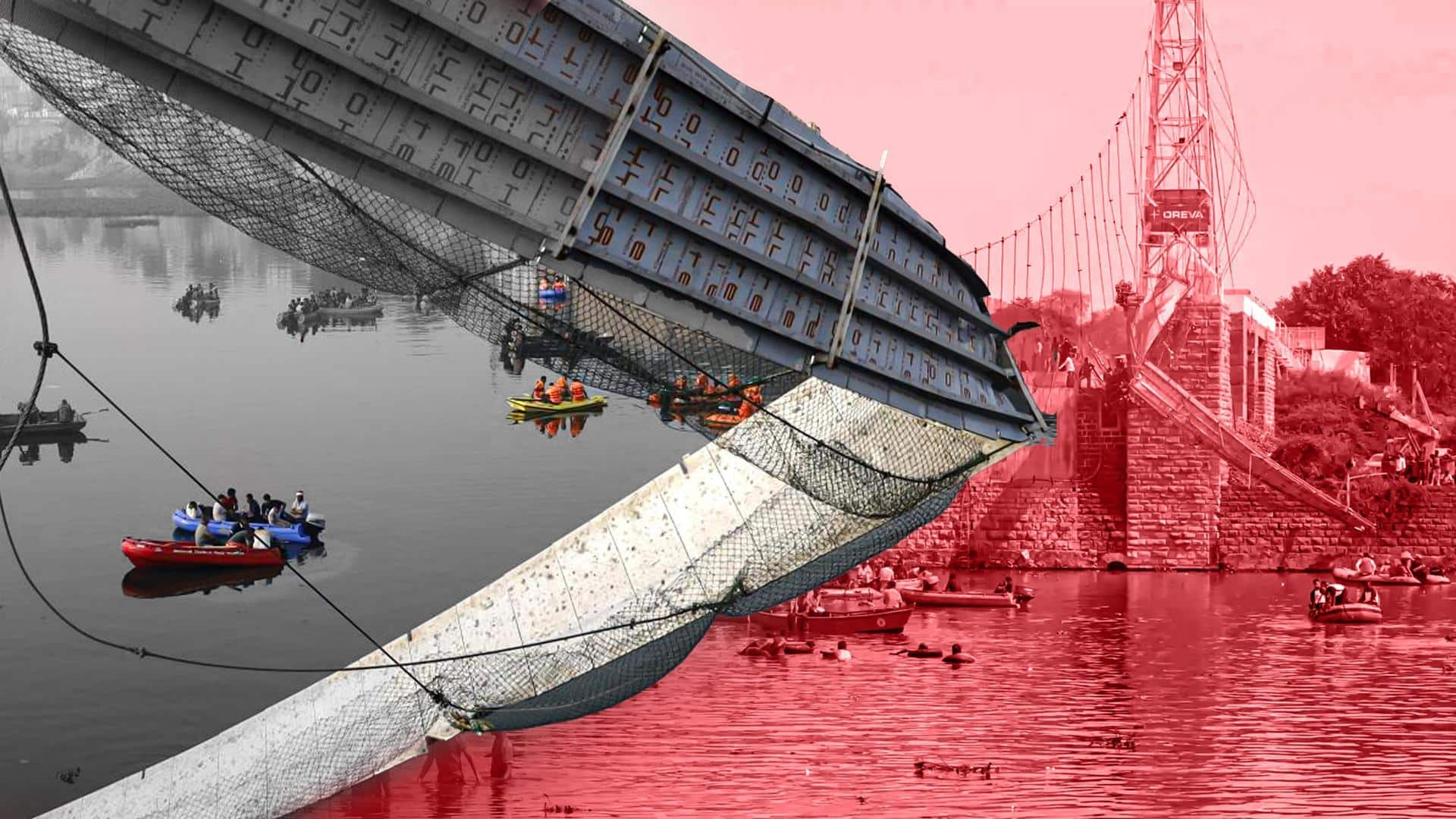
Morbi bridge collapse: Half of cables had broken before tragedy
What's the story
Administrative and technical lapses with no corrective measures led to the Morbi bridge collapse—which killed 135 people on October 30, 2022—the special investigation team (SIT) formed by the Gujarat government said in a report submitted to the Gujarat High Court. A total of 49 wires suspended the British-era bridge, of which 22 were already corroded and might have broken before the tragedy, it said.
Context
Why does this story matter?
The bridge, owned by the Morbi municipality and maintained by Oreva Group—a wall clock and e-bike manufacturer—collapsed four days after being reopened, raising questions. It was reportedly supposed to remain closed for maintenance for 8-12 months but was prematurely reopened on October 26 (Gujarati new year) without requisite permissions. Oreva Group Managing Director Jaysukh Patel, the main accused in the case, surrendered last month.
Report
Morbi municipality office bearers responsible for collapse: SIT
The special investigation team (SIT) report also held Morbi municipality's chief officer Sandipsinh Zala responsible for signing a maintenance agreement with Oreva Group without approval from the civic body's general board. The Oreva Group, the manufacturer of Ajanta wall clocks and e-bikes, reportedly with no experience in the construction business, got the contract in March last year for a period of 15 years.
Approval
Oreva Group wanted to raise charges, municipality refused: Report
The report said the municipality executive committee's president, vice president, and chairman should have discussed the approval for the Oreva agreement in their general body meeting. Moreover, after getting the contract, the Oreva Group even sought to increase the user charge for the bridge, which the municipality declined and asked it to return possession of the bridge, but the company failed to do so.
Company
Company didn't restrict sale of tickets, had no security: Report
Furthermore, the report said no corrective measures were taken by either party to improve the bridge's condition. It held the private company responsible for mismanagement as there was no restriction on the number of tickets sold and, in turn, the people getting on the bridge at a given point in time. It said there wasn't enough security to stop people from damaging the bridge.
Information
Oreva Group outsourced repair work to incompetent agency: SIT
The SIT report also observed that Oreva Group outsourced the bridge's repair work to an incompetent agency that didn't even test its main cable and vertical suspenders. It renovated the bridge without consulting competent technical experts and welded the old suspenders with new ones, too.